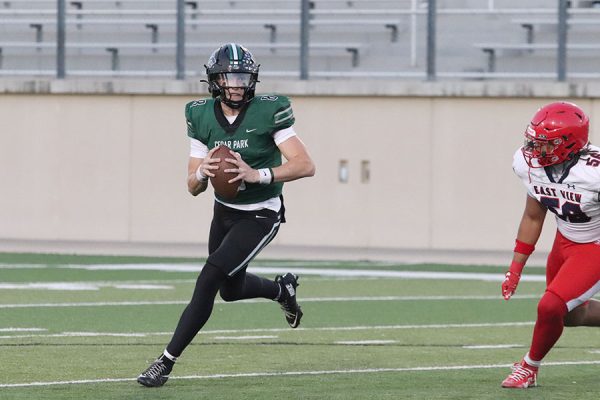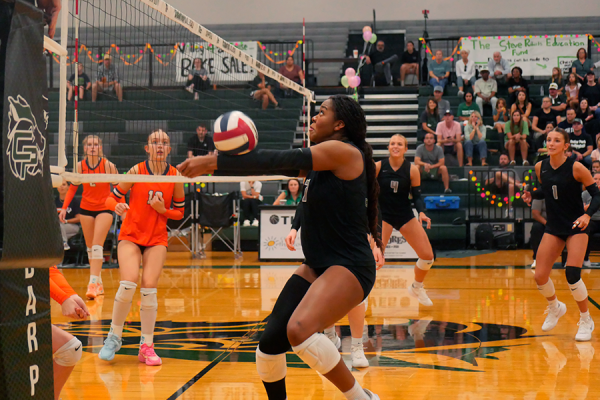First State Attempt, First Win
FFA Team Places at State
From left to right, junior Abigail Martinez, freshman Kacey Miller, freshman Jordyn Jones and senior Isabela Johnson pose for a photo at Texas Tech University where the state event for Agricultural Communications is held. Their advisor, agricultural science teacher Shannon Butler, was involved in helping them practice and motivating them for Agricultural Communications, which they placed fifth in as a team, as well as bringing many of them on board in the first place. “I am very purposeful in selecting members for this team who are already well versed in their respective practicums,” Butler said. “I provided resources for the team and formatted practices so they would not feel overwhelmed by the amount of information needing to be learned from the AP and Agricultural Communications textbooks. The girls were a little bummed initially because we had high hopes for Nationals, but were very proud of themselves and their team.”
May 17, 2022
None of them had ever done a competition for the Future Farmers of America before. In fact, none of them were even members of FFA before this year. Yet, as the Agricultural Communications team left Texas Tech on April 23 having just completed their events, it was only a couple of days before they received the news through a Zoom call: they placed fifth in the state.
Agricultural Communications is one of 29 activities the Texas FFA offers for Career Development Events. It involves participating in a simulated news conference about an agriculture-related topic before each team member splits to do their own task, or practicum, about the topic. The practicums are editing a video using other given videos, photos and music, writing a news story, designing a three-page website and writing an opinion piece about the topic. These practicums were handled by junior Abigail Martinez, freshman Kacey Miller, freshman Jordyn Jones and senior Isabela Johnson.
“We all play an important role because we all have our respective events,” Martinez said. “A lot of other Career Development Events have what’s called a drop score where the lowest score of the team gets dropped, but you don’t have that with [Agricultural Communications] so it was important that everyone did their best.”
This, plus an Agricultural Communications quiz for each participant about important communications and public relations concepts and a copyediting quiz, make up the Agricultural Communications contest. For Martinez and Miller, it helped to have prior experience in their respective practicums, with Martinez’s time in Broadcast and Miller’s participation in the Journalism class and UIL Journalism events.
“I finished writing [my news story] in half an hour and then I just looked at it again, edited it and found ways to make it shorter since there was a limit of 350 words,” Miller said. “I did UIL before, so that was pretty helpful.”
The assigned topic was a summer program that the University of Texas Tech hosted for two years involving a research project for students. Participants had to create their own media which would inform readers about the program, the people running it and how others could get involved. The team would practice by meeting every Wednesday to watch a previous year’s press conference and doing their associated practicum.
“We told ourselves that we would work harder to get better,” Miller said. “We all improved so much over the practice meets [compared to] the real thing. We all were able to complement our strengths and help each other to learn to be better.”
In addition to practice on Wednesday, they would also hold early morning and late night study sessions where they could help each other out on their projects and study for terms on their Agricultural Communications exam. For example, Miller helped Jones create a website for the competition, while the team used resources like Quizlet and whiteboards to memorize terms for writing or video editing. Agricultural science teacher Shannon Butler would advise them along the way, and brought many of the members on board in the first place.
“I was in Floral I last year and really enjoyed it, so I did the Advanced Floral class this year,” Martinez said. “Ms. Butler knew I was in Broadcast and asked if I knew how to edit and if I’d be interested in Agricultural Communications. I decided to participate because I thought it would be fun to do something that I already knew how to do, but in a different way.”
For the practice meets where they looked at past news conferences or when they needed information about a specific part of the competition, Butler would be there to handle it and advise them on what they needed to do. This, plus Butler’s pep talks, gave the team the skills and the motivation they needed to do well in the competition, according to Miller.
“We called her the ‘FFA Mama’ at some point because she was just always there for us,” Miller said. “She was always there to talk through things. Not only did she help us with the information part, but she helped make us feel good about what we knew, and feel better about how our performance was. She also gave pep talks, and that was really important to us.”
While the assigned topic may relate to the agricultural side of FFA, the required skills for this competition go beyond that scope. Whether it is about the more journalistic, public relations side of FFA in agricultural communications or something else, FFA has much to offer for a wide variety of skills.
“Usually whenever people ask me what I do for FFA, [they ask me] what animal [I] have,” Miller said. “I [took care of] a sheep, but it’s so much more; it’s career development events and leadership development events. As for the organization, it’s a lot more about establishing relationships with people in general, and also having the opportunity to hold spots of leadership. It’s a lot of soft skills, like social skills, that you learn, and also hard skills like agricultural mechanics or construction of the barn.”


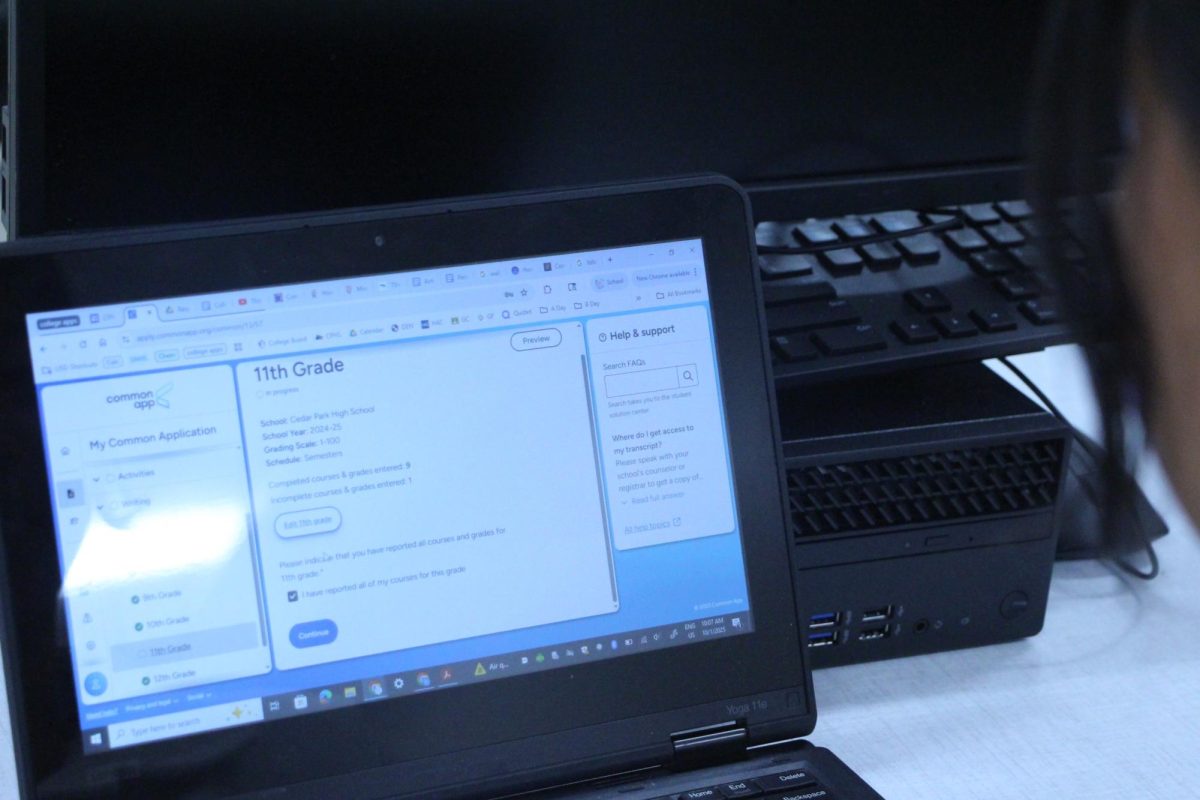
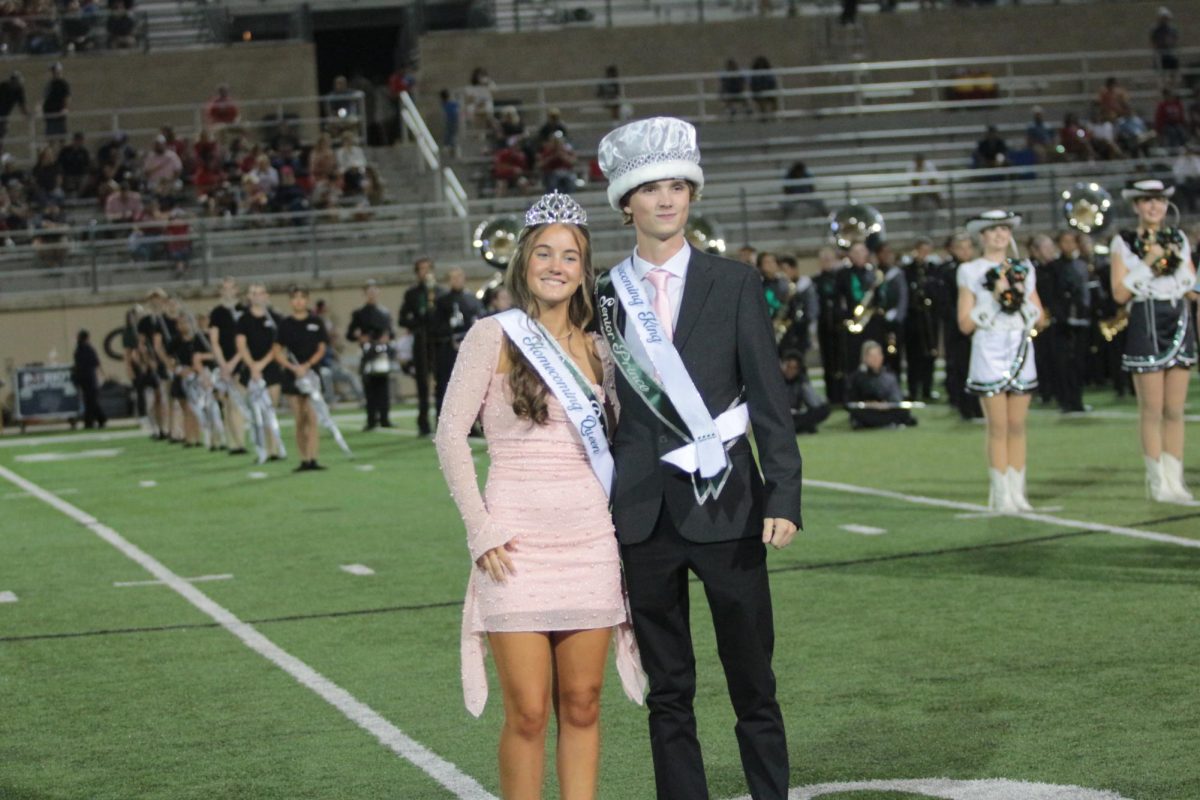




![As her hair blows in the wind, senior Brianna Grandow runs the varsity girls 5K at the cross country district meet last Thursday. Grandow finished fourth in the event and led the varsity girls to regionals with a third place placement as a team. “I’m very excited [to go to regionals],” Grandow said. “I’m excited to race in Corpus Christi, and we get to go to the beach, so that’s really awesome.” Photo by Addison Bruce](https://cphswolfpack.com/wp-content/uploads/2025/10/brianna.jpg)

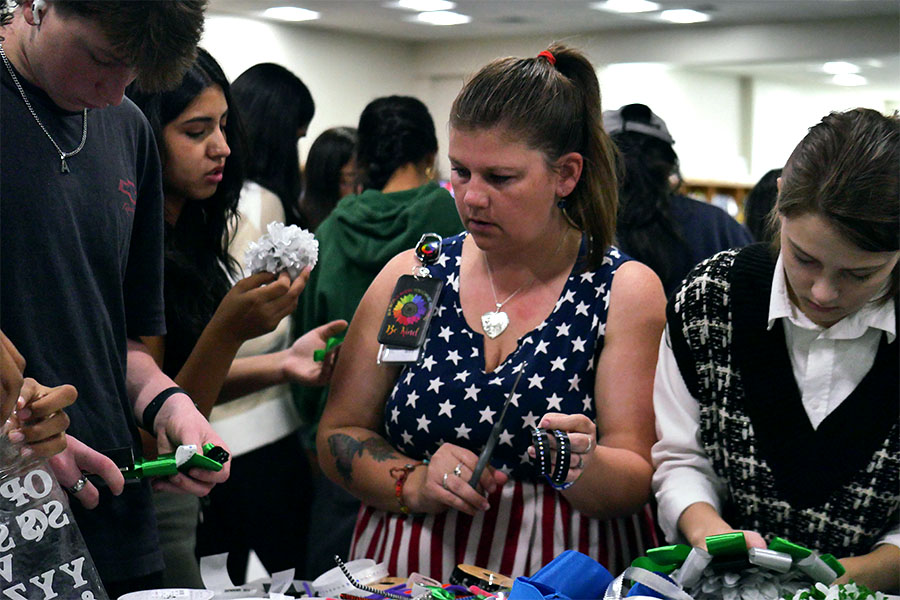
![Broadcast, yearbook and newspaper combined for 66 Interscholastic League Press Conference awards this year. Yearbook won 43, newspaper won 14 and broadcast took home nine. “I think [the ILPC awards] are a great way to give the kids some acknowledgement for all of their hard work,” newspaper and yearbook adviser Paige Hert said. “They typically spend the year covering everyone else’s big moments, so it’s really cool for them to be celebrated so many times and in so many different ways.”](https://cphswolfpack.com/wp-content/uploads/2025/05/edited-ILPC.jpg)





![Sitting with her friend senior Sohpia Struve at last year’s Austin City Limits Festival, senior Ava Zuniga poses for a picture under a pavilion. They are frequent attendees at ACL, an annual music festival at Zilker Park. “I would recommend seeing a bunch of people,” Zuniga said. “This past year, we camped out for Chappell [Roan] for a really long time. I think the whole point of ACL, [which] is a lot of fun, is that you can go see so many different people, even if you don’t know them. So by camping by one person, it really limits yourself from being able to go see a bunch of people.” Photo courtesy of Ava Zuniga](https://cphswolfpack.com/wp-content/uploads/2025/10/EE9E9484-FE6F-4AA0-B5F5-0C177AB32841-1200x857.jpeg)
![Looking down at his racket, junior Hasun Nguyen hits the green tennis ball. Hasun has played tennis since he was 9 years old, and he is on the varsity team. "I feel like it’s not really appreciated in America as much, but [tennis] is a really competitive and mentally challenging sport,” Nguyen said. “I’m really level-headed and can keep my cool during a match, and that helps me play a bit better under pressure.” Photo by Kyra Cox](https://cphswolfpack.com/wp-content/uploads/2025/09/hasun.jpg)

![Bringing her arm over her head and taking a quick breath, junior Lauren Lucas swims the final laps of the 500 freestyle at the regionals swimming competition on date. Lucas broke the school’s 18-year-old record for the 500 freestyle at regionals and again at state with a time of 4:58.63. “I’d had my eye on that 500 record since my freshman year, so I was really excited to see if I could get it at regionals or districts,” Lucas said. “ State is always a really fun experience and medaling for the first time was really great. It was a very very tight race, [so] I was a bit surprised [that I medaled]. [There were] a lot of fast girls at the meet in general, [and] it was like a dogfight back and forth, back and forth.” Photo by Kaydence Wilkinson](https://cphswolfpack.com/wp-content/uploads/2025/03/Kaydence-2.7-23-edit-2.jpg)
![As the support team sits and poses for a photo in the cafeteria with the counseling team they eagerly wait to start their day. "We [all] seem to be a team, I get up every day and there's days where I don't want to go to work today, but I'm thankful that I have a job and I'm blessed to have what I have," Christopherson said. Photo Courtesy of Julie Weltens.](https://cphswolfpack.com/wp-content/uploads/2025/01/AF9E8470-10D7-4C91-BF28-EC8F86BAB66C-1200x852.jpeg)
![Jumping off the ground, senior linebacker Bennett Patton snatches the ball out of the air for an interception at Thursday’s game against Chaparral. Patton had two interceptions in the 56-14 victory, tying the school record for interceptions in a game. “I was just playing the game,” Patton said. “[I’m] going to go into next week, forget about it and stay humble.” Photo by Harper Chapman](https://cphswolfpack.com/wp-content/uploads/2025/09/bennett-interception.jpg)













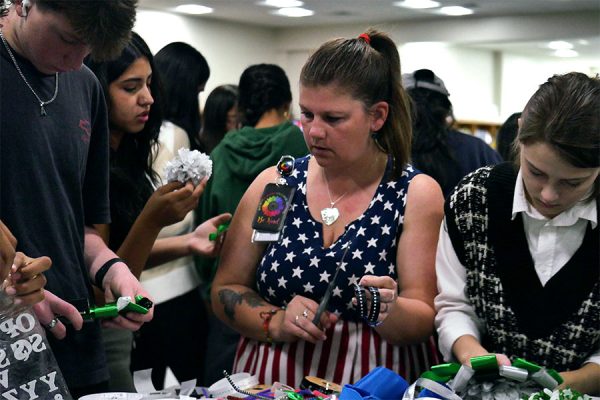
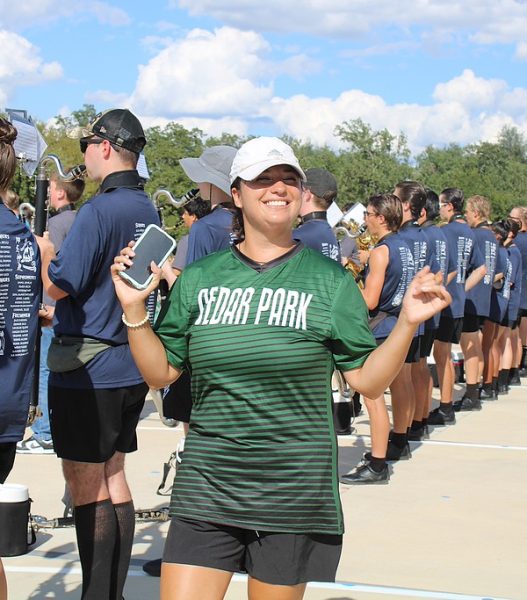
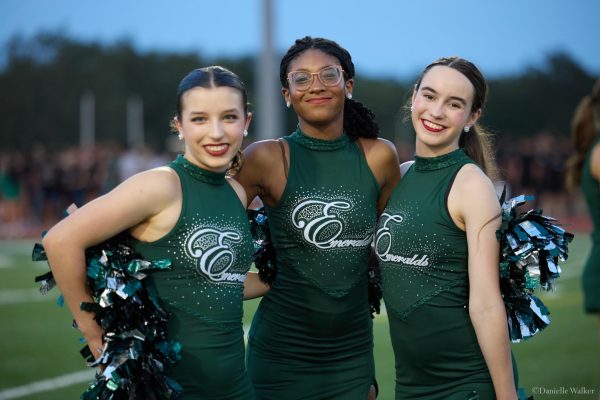
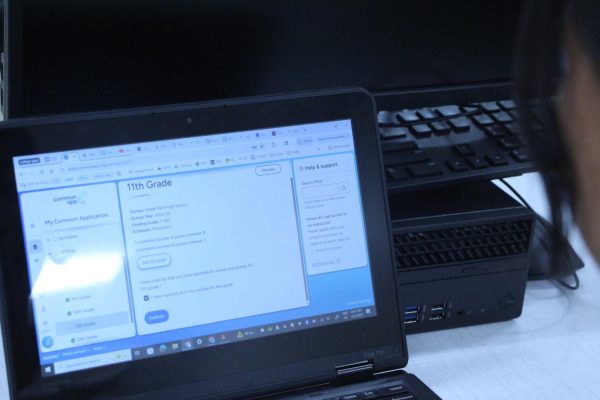
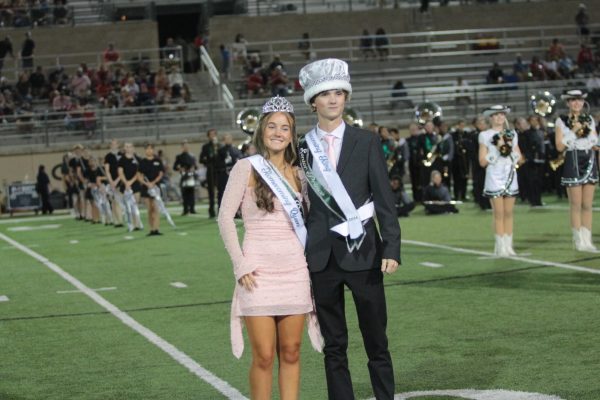
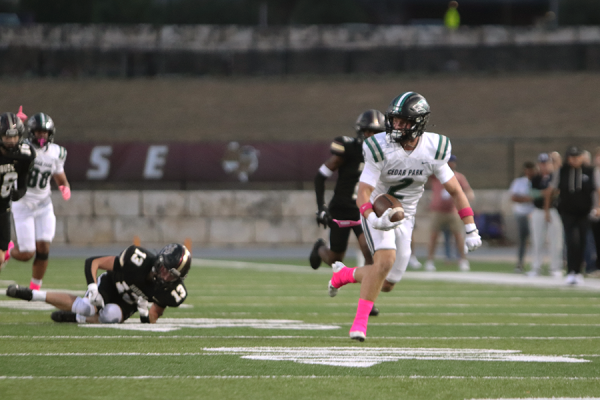
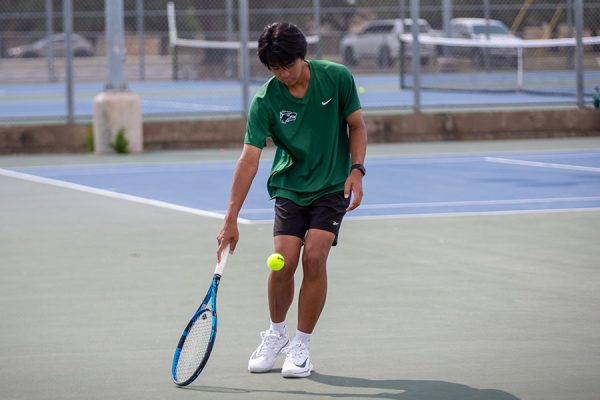
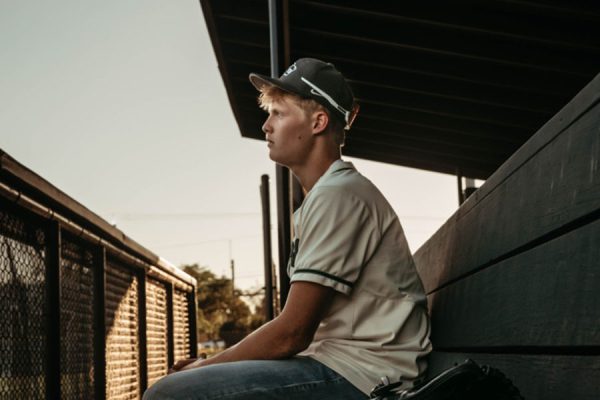


![The fire department came to the school after students were evacuated when smoke started coming from the ceiling of a classroom. All students and staff are safe. “All of my friends left their stuff too, so we couldn’t contact our parents, and it was stressful,” senior Brynn Fowler said. “It was scary because I didn’t know [what was going on], and I couldn’t find anyone because it was a big crowd.” Photo by Anthony Garcia](https://cphswolfpack.com/wp-content/uploads/2025/09/firetruck-300x200.jpg)




